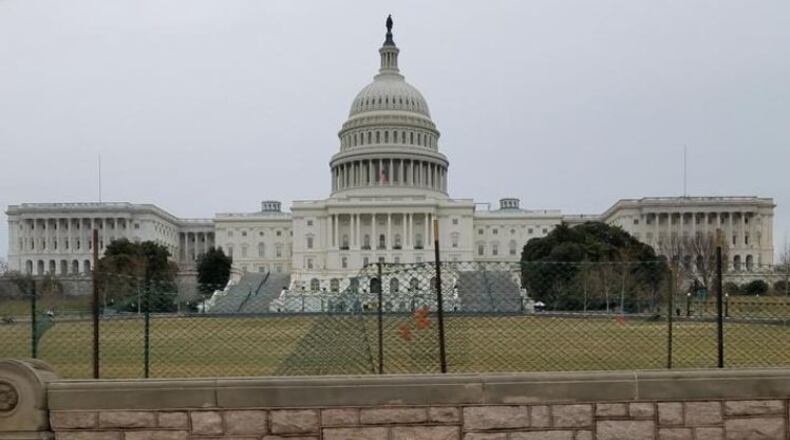A two year budget agreement announced Wednesday by Congressional leaders was met with scorn from many more conservative Republicans on Capitol Hill, as the combination of big increases in military and domestic spending left some GOP lawmakers frustrated over a lack of budget discipline, while outside groups quickly predicted the plan could swiftly bring back $1 trillion yearly deficits.
"It's almost a quarter trillion dollar increase in spending," said Rep. Jim Jordan (R-OH), who told reporters it reminded him of the Obama Stimulus law. "We all know how obnoxious that was."
"The spending increase is a big problem for a lot of people," said Rep. Markwayne Mullin (R-OK), who said he liked the $165 billion extra in defense spending over two years - but not the $131 billion for non-defense programs.
"We're going to add to the deficit in a huge way," said Rep. Dan Webster (R-FL).
"The big spending, liberal Republicans spoke in favor of it," said Rep. Mo Brooks (R-AL), expressing his frustration after a closed door meeting of GOP lawmakers.
Asked how he would vote, Brooks was clear.
"I'm not only a no, I'm a hell, no."
Other Republicans were clearly having heartburn as well, inclined to support more money for the Pentagon, but acknowledging that without 60 votes in the Senate, they would have to give Democrats more money for domestic spending as well.
"If the agreement fully funds the military, then I'm willing to give on the other side of the equation," said Rep. Austin Scott (R-GA).
"Fully funding the military, to me, is incredibly important," said Rep. Frank Lucas (R-OK).
As details of the two year budget deal were announced by Senate leaders, conservative groups on Wednesday quickly tried to marshal opposition against the plan.
Five other conservative organizations looked to put further pressure on Republicans with a letter that labeled the budget deal, a "betrayal of American taxpayers and a display of the absolute unwillingness of members of Congress to adhere to any sort of responsible budgeting behavior."
Independent budget watchdog groups cringed at the details.
"Based on what we know, the budget deal would increase next year's deficits to roughly $1.2 trillion," reported the Committee for a Responsible Federal Budget, which predicted that yearly "deficits would remain over $1 trillion indefinitely."
The deficit in 2017 was $666 billion - so far in Fiscal Year 2018, the deficit is running about seven percent higher. Add in extra spending for this deal, plus over $100 billion in disaster aid, along with higher interest payments on the federal debt, and the deficit might be close to $1 trillion this year.
When deficits hit that level for four straight years in the Obama Administration, Republicans were outraged, as they forced the adoption of strict budget caps in 2010.
But those caps ultimately proved to be too tight on military spending for Republicans.
The 652 page agreement was posted online overnight - here are some of the details in a Twitter thread:
About the Author
The Latest
Featured



